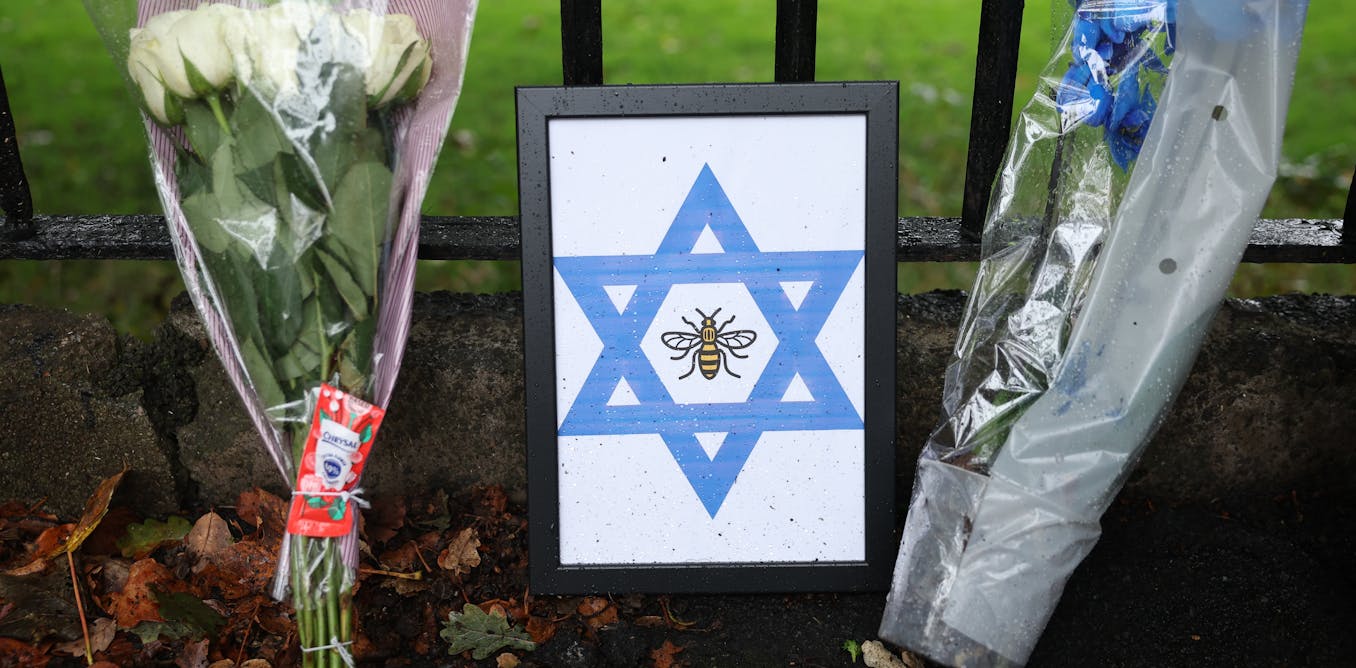Lifestyle
Manchester Synagogue Attack Shocks Community on Yom Kippur

On October 2, 2025, a terrorist attack on the Heaton Park synagogue in Manchester resulted in the deaths of two members of the local Jewish community and left several others seriously injured. The assault occurred on Yom Kippur, the holiest day in the Jewish calendar, deeply traumatizing both the local and national Jewish communities. The attack has reignited discussions about antisemitism in the UK, particularly in Manchester, a city with a complex history regarding its Jewish population.
Understanding the historical context of Manchester Jewry is crucial to grasping the significance of this tragic event. Tony Kushner, an esteemed researcher on antisemitism and a lifelong Mancunian Jew, reflects on his dual identity as both an insider and an outsider. Born to parents who settled near Heaton Park synagogue in the 1950s, Kushner has spent much of his life away from the area, living in Southampton. This blend of perspectives informs his analysis of the events surrounding the attack.
Historical Context of Manchester Jewry
Manchester has a long history of Jewish settlement, dating back to the late 18th century when the first Jews, primarily of German origin, arrived as pedlars and shopkeepers. The community expanded significantly during the 19th century, particularly with the influx of Eastern European Jews fleeing persecution. By the 1870s, the Jewish population had grown to approximately 4,000, with many arriving from Poland, Lithuania, and Romania. This trend continued until the onset of World War I, when the Jewish community reached around 25,000.
The Heaton Park synagogue, established in 1935 and relocated to its present site in 1967, symbolizes the suburbanization of Manchester’s Jewish population. As of the 2021 census, the Manchester Jewish community comprises roughly 28,000 individuals, marking a 12% increase from the previous decade. Much of this growth is attributed to the Haredi community, including many who sought refuge in the UK during the 1956 Hungarian Revolution.
Despite its reputation for cosmopolitanism, Manchester has faced its share of antisemitism. Historical accounts reveal that early Jewish settlers encountered hostility, with local publications referring to Eastern European Jews in derogatory terms. However, the Manchester Guardian, a prominent newspaper, often defended Jewish contributions to the city, advocating for the rights of asylum seekers.
Antisemitism and Community Resilience
The most significant antisemitic incidents in Manchester’s history include riots in 1947, which erupted following right-wing extremist actions in Palestine. These riots primarily targeted Jewish property, leaving the community shaken and still reeling from the aftermath of the Holocaust. Responses to such events have emphasized a collective condemnation from religious and political leaders alike, who have denounced these acts as uncharacteristic of British values.
Manchester has shown resilience in the face of terrorism before. The city recovered from the IRA bombing in 1996 and the Islamist attack at the Manchester Arena in 2017. Community solidarity has emerged as a defining feature of Manchester’s response to violence. Local residents have voiced a commitment to unity, stating, “These people are sent to divide us, but they won’t.”
The recent attack on the Heaton Park synagogue marks a significant moment in the ongoing struggle against antisemitism in Manchester. As the community grapples with the immediate aftermath, the historical context of Jewish life in the city serves as a reminder of both the challenges and the enduring strength of its diverse population. The sentiment of resilience and mutual support underscores a determination to confront divisive forces and uphold the values of inclusivity that Manchester prides itself on.
Tony Kushner, who penned these reflections, emphasizes the need for ongoing dialogue and action against antisemitism. He holds no affiliations that could influence his analysis, focusing solely on the implications of this tragic event for Manchester’s Jewish community and the broader societal landscape.
-

 World1 week ago
World1 week agoPrivate Funeral Held for Dean Field and His Three Children
-

 Top Stories2 weeks ago
Top Stories2 weeks agoFuneral Planned for Field Siblings After Tragic House Fire
-

 Sports3 months ago
Sports3 months agoNetball New Zealand Stands Down Dame Noeline Taurua for Series
-

 Entertainment3 months ago
Entertainment3 months agoTributes Pour In for Lachlan Rofe, Reality Star, Dead at 47
-

 Entertainment2 months ago
Entertainment2 months agoNew ‘Maverick’ Chaser Joins Beat the Chasers Season Finale
-

 Sports3 months ago
Sports3 months agoSilver Ferns Legend Laura Langman Criticizes Team’s Attitude
-

 Sports1 month ago
Sports1 month agoEli Katoa Rushed to Hospital After Sideline Incident During Match
-

 World2 weeks ago
World2 weeks agoInvestigation Underway in Tragic Sanson House Fire Involving Family
-

 Politics2 months ago
Politics2 months agoNetball NZ Calls for Respect Amid Dame Taurua’s Standoff
-

 Top Stories2 weeks ago
Top Stories2 weeks agoShock and Grief Follow Tragic Family Deaths in New Zealand
-

 Entertainment3 months ago
Entertainment3 months agoKhloe Kardashian Embraces Innovative Stem Cell Therapy in Mexico
-

 World4 months ago
World4 months agoPolice Arrest Multiple Individuals During Funeral for Zain Taikato-Fox





















